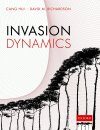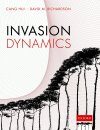![Invasion Dynamics Invasion Dynamics]()
Click to have a closer look
About this book
Contents
Customer reviews
Biography
Related titles
About this book
Humans have moved organisms around the world for centuries but it is only relatively recently that invasion ecology has grown into a mainstream research field. Invasion Dynamics examines both the spread and impact dynamics of invasive species, placing the science of invasion biology on a new, more rigorous, theoretical footing, and proposing a concept of adaptive networks as the foundation for future research. Biological invasions are considered not as simple actions of invaders and reactions of invaded ecosystems, but as co-evolving complex adaptive systems with emergent features of network complexity and invasibility.
Invasion Dynamics focuses on the ecology of invasive species and their impacts in recipient social-ecological systems. It discusses not only key advances and challenges within the traditional domain of invasion ecology, but introduces approaches, concepts, and insights from many other disciplines such as complexity science, systems science, and ecology more broadly. It will be of great value to invasion biologists analyzing spread and/or impact dynamics as well as other ecologists interested in spread processes or habitat management.
Contents
1: Setting the scene
2: The dynamics of spread
3: Modelling spatial dynamics
4: From dispersal to boosted range expansion
5: Non-equilibrium dynamics
6: Biotic interactions
7: Regime shifts
8: Community assembly and succession
9: Monitoring and management
10: Complex adaptive networks
11: Managing biological invasions in the Anthropocene
Customer Reviews
Biography
Cang Hui is a Professor of Mathematical Biology and the South African Research Chair in Mathematical and Theoretical Physical Biosciences based at Stellenbosch University and the African Institute for Mathematical Sciences in South Africa. His research focuses on developing models and theories for explaining emerging patterns of biodiversity, networks, and traits in ecology and evolution. Biological invasions provide a model system for his research. Hui has published more than 100 papers and received the Elsevier Young Scientist Award in 2011. He is a core-team member of the DST-NRF Centre of Excellence for Invasion Biology and is on the editorial board of several journals, including Biological Invasions, BMC Ecology, Ecological Complexity, and Frontiers in Ecology and Evolution.
David M. Richardson is Distinguished Professor of Ecology and the Director of the DST-NRF Centre of Excellence for Invasion Biology, based at Stellenbosch University, South Africa. His research focuses mainly on plant invasions, especially trees and shrubs. He is interested in the biogeography, ecology and management of invasions and in conservation biogeography in general. Richardson has published more than 350 papers, edited or co-edited 6 books and has received several awards, including the Hans Sigrist Prize in 2006 and the 2013 John F.W. Herschel Medal from the Royal Society of South Africa. He served as Editor-in-Chief of the journal Diversity and Distributions between 1998 and 2015 and is Associate Editor of several other journals, including Biological Invasions and Neobiota.







































